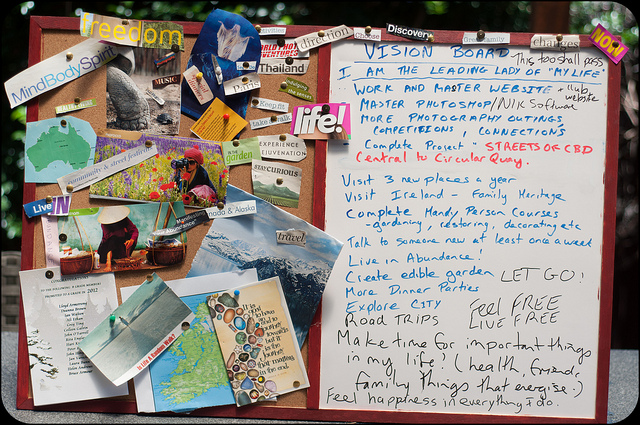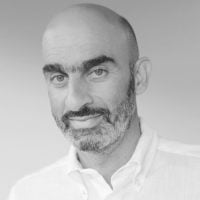
“The world is the true classroom. The most rewarding and important type of learning is through experience, seeing something with our own eyes.” ~ Jack Hanna
.
On the 1st of January, 2017, I reviewed my 2016 with the intention of starting the new year out with a bang.
It is only now, one week later that I’m getting clear on what worked last year, what didn’t, and the lessons I learned.
With all the self-help books and advice available, we might read a great piece of advice that has the potential to work miracles in our life, but until we internalize it or relate it to our own experience, we won’t seemingly trust it.
The best way to learn is through experience. Unless we absorb an emotion as a lesson, it will never become wisdom; rather, it remains as abstract knowledge parked somewhere out in the ether.
These are the five lessons that 2016 left with me:
1) My life and goals don’t end on New Year’s Day of the following year.
I now look at goal-setting not as a mere one-year plan, but rather more like a 20-year life plan. I think more in terms of creating systems than setting goals. With these systems, I’m doing something on a regular basis that makes me better and more content in the long run.
I don’t get the instant gratification that achieving a goal can give, but I also don’t carry the stress of not reaching a goal.
My ultimate aspiration—and one that I will pursue endlessly and ruthlessly—is to become a writer who earns enough money from writing to cover a comfortable lifestyle. I’m giving myself as much time as possible, as I know it’s not something I’ll achieve within the next few years. In the meantime, I’m enjoying the journey to becoming a full-time writer and using the fire of my passion to power my life.
2) Health is everything.
If you had told me health matters when I was under 40, I would have nodded politely but shrugged it off the same way most people shrug off global warming—yes, it’s a problem, but not mine, and I have more pressing issues.
However, as I approach 50, I get it; it affects me in the now. It’s less about dying early and more about living well until I die. In the past few years, I can’t remember a week where I haven’t had some pain or mild distress, whether it’s from trying some exercise I shouldn’t or not warming up my muscles well enough. I’ll also experience gastrointestinal and digestive problems from eating badly, drinking excessively or binging on sugar.
These minor health issues, though not deadly, wreak havoc on my mind, and I end up spending many hours like a zombie, unable to do any of the things I want to do. They quickly lead me to despair and often take me down the dark road of melancholy. I could swear that every time I’ve suffered such emotions, I could trace them back to a failure in my body—some health issue.
3) Embrace simplicity.
“I felt once more how simple and frugal a thing is happiness: a glass of wine, a roast chestnut, a wretched little brazier, the sound of the sea. Nothing else.” ~ Nikos Kazantzakis, Zorba the Greek
I can still feel the overwhelm that overpowered me last year. I took on too many projects. I tried to change too many things in my life, and in the end, I lost my way and often my mind.
If we listen closely to our hearts, there is an inherent urge in us to simplify our lives. Fewer decisions mean less energy spent. And so, instead of more, we should choose less to help us focus, engage and enjoy those valuable things.
The more we get rid of anything unnecessary, the better we feel. All that extra is clutter—and that stands in the way of our inner peace and contentment. By removing the unnecessary, we make room for what is essential and acquire more focus.
What is “essential” differs considerably for each of us. As such, simplifying our lives is a personal and very much subjective endeavor.
Me? I want to stick to one exercise regimen for at least three months and one eating plan for the whole year. I want to write for one publication only—elephant journal. I want to focus on writing only. In my business, I have only one goal, which is to improve customer service.
4) Kaizen and the power of one percent improvement.
Kaizen is a Japanese term that has become famous in the West. It describes continuous improvement through small incremental changes that accumulate over time. It’s used in the corporate world for developing systems and practices, and it’s one of the core principles that Toyota used to become the number one car producer in the world.
We tend to associate change with some large, visible result like a before-and-after picture of someone who has lost weight in a few months. In reality, however, the greatest shifts occur when we make incremental changes daily. This way, we don’t put too much pressure on ourselves and overload our capacity.
I specifically applied this concept to my writing by challenging myself to write daily. I started at 300 random words per day, gradually went up in both quantity and quality, and ended up writing a more coherent 1,000 words per day. I enrolled in many writing courses and used different writing coaches and editors to improve my work, but all at a slow one percent pace
5) We are a product of our habits.
Last year, I set about solidifying the habits I wanted in my life. I called them my “non-negotiables” and committed them to a daily practice. They include rising early, usually just before the sun, meditating for 20 minutes, and journalling for three Julia Cameron morning pages. In the late afternoons, these non-negotiables involve reading for an hour and then writing for at least an hour or a thousand words.
These practices have become the pillars of my daily living—the small bridges to my soul. It’s as if when I’m doing them consistently, I’m closer to my higher self. I fill up my body with enough soul to be able to live a day in the physical world.
I travelled on holiday during the Christmas period, and somehow I managed to stop most of my daily practices. Don’t ask me how this happened; I still can’t find a logical answer, but it did. Without realising, I closed the door to my soul, and within a few days I lay sick in bed with a heavy flu.
My mood transformed from intentions of relaxation and fun to a swarm of negative thoughts. I was counting the hours to get back to my physical home and my spiritual abode—my daily practices.
These lessons have now entered into my subconscious, and I feel I can apply all of them toward all aspects of my life. I will do so unconsciously, as they have become part of me. This is what I stand for and how I want to live until I die.
~
Author: Mo Issa
Image: Colleen Galvin/Flickr
Editor: Caitlin Oriel

 Share on bsky
Share on bsky






Read 0 comments and reply